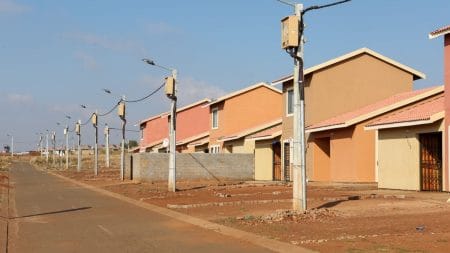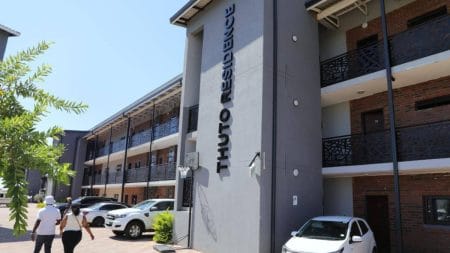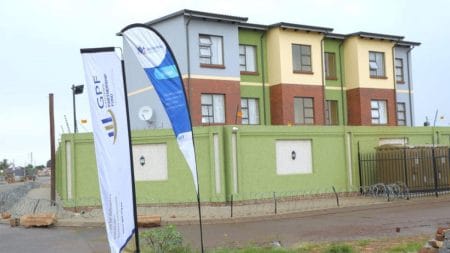RDP housing, or Reconstruction and Development Programme housing, is a cornerstone of South Africa’s efforts to provide affordable housing for lower-income families. Since the early 1990s, this initiative has enabled millions of citizens to access homes either free of charge or at highly subsidised rates. While the programme has been largely successful in addressing housing shortages, government regulations on RDP housing sales play a critical role in determining how these homes can be bought and sold. These regulations are in place to ensure that the homes remain affordable and that the programme continues to benefit the intended recipients.
This article explores the various government policies surrounding RDP housing sales, focusing on issues such as ownership restrictions, waiting periods, resale regulations, and eligibility criteria. By understanding these rules, both current owners and potential buyers can navigate the RDP housing sales market more effectively.
Understanding RDP Housing
The Reconstruction and Development Programme (RDP) was introduced in 1994 by the South African government to address the severe housing shortage and uplift living standards for millions of disadvantaged citizens. The primary goal of the RDP initiative is to provide low-cost housing to those who earn less than a certain income threshold.
These homes are built by the government and are either given for free or sold at subsidised rates to qualified beneficiaries. However, despite the many benefits, the process of RDP housing sales is subject to strict regulations to ensure that the homes remain within the low-income segment and prevent exploitation of the system.
Read More: RDP Housing Application Guide: Eligibility, Process, and Ownership in South Africa
Government Policies on RDP Housing Sales
a. The 8-Year Waiting Period
One of the most significant policies regulating RDP housing sales is the 8-year waiting period. According to this rule, beneficiaries of an RDP house are not allowed to sell their homes within the first 8 years of receiving them. This policy is designed to prevent beneficiaries from quickly reselling the homes at a profit, which would defeat the purpose of the government providing affordable housing.
The 8-year waiting period ensures that homes remain in the hands of those who need them most. If someone tries to sell their RDP home before this period expires, the sale is considered illegal, and the government reserves the right to reclaim the house. This rule is fundamental in maintaining the integrity of the RDP programme and regulating RDP housing sales.
b. RDP Housing Sales After 8 Years
After the 8-year restriction period has passed, the homeowner is legally allowed to sell the house. However, the RDP housing sales process must adhere to legal procedures, including proper documentation, such as the transfer of title deeds. Any sale of an RDP house must be registered with the appropriate authorities, ensuring that the sale complies with all necessary laws.
Even though sales are permitted after the 8-year mark, the government continues to monitor these transactions closely. This is done to prevent the commodification of RDP housing sales, ensuring that the homes remain accessible and affordable for future buyers within the low-income bracket. Without these checks, there is a risk of the homes being sold at significantly inflated prices, which would undermine the affordability aspect of the RDP programme.
c. Transfer of Title Deeds
For any legal RDP housing sale to occur, the homeowner must possess the title deed for the property. The title deed serves as proof of ownership, and without it, the sale cannot be legally recognised. Unfortunately, many beneficiaries do not receive their title deeds immediately after acquiring an RDP house, which can complicate matters when they want to sell their homes later.
Over the years, the South African government has made efforts to streamline the process of issuing title deeds, but delays are still common in certain areas. Without a title deed, beneficiaries cannot legally engage in RDP housing sales, making it important for all homeowners to secure this critical document.
Eligibility Criteria for Purchasing an RDP House
The South African government has set strict criteria for individuals looking to participate in RDP housing sales. These criteria help ensure that only those in genuine need of affordable housing are able to purchase RDP houses. To qualify as a buyer in the RDP housing sales market, the following requirements must be met:
- Income Bracket: Buyers must fall within the government-defined income bracket for RDP housing sales. Generally, buyers must earn less than R3,500 per month to qualify. This ensures that the homes are reserved for low-income individuals and families who are in dire need of affordable housing.
- Citizenship or Permanent Residency: Only South African citizens or permanent residents are eligible to buy an RDP house. This restriction ensures that the programme benefits South Africans and prevents foreigners from participating in RDP housing sales.
- No Prior Home Ownership: To qualify for an RDP house, the buyer must not already own property. This rule is in place to ensure that RDP homes are reserved for those who do not have any form of housing, thereby preventing people who already own property from taking advantage of the system.
- First-Time Buyers: In most cases, RDP housing sales are intended for first-time homebuyers. This further ensures that those who have never had the opportunity to own a home before can benefit from the programme.
Challenges and Restrictions on Resale
Despite the guidelines in place, there are several challenges associated with RDP housing sales. These challenges include illegal sales and inflated resale prices, both of which threaten the integrity of the RDP programme.
a. Illegal Sales
One of the most significant issues facing the RDP housing sales market is the prevalence of illegal transactions. Some homeowners try to sell their homes before the 8-year waiting period has expired, often using informal agreements. These sales are not recognised by the government, leaving buyers vulnerable to losing their homes if the sale is deemed illegal.
To address this issue, the government has been actively working to educate both buyers and sellers about the legalities of RDP housing sales and the consequences of engaging in illegal transactions. Sellers who violate the 8-year rule may face penalties, including the possible repossession of their property by the government.
b. Reselling at Inflated Prices
While RDP homes are provided at a very low cost or for free, some beneficiaries attempt to sell their homes at much higher prices once they are legally allowed to do so after the 8-year waiting period. This practice defeats the purpose of the RDP programme, which is to provide affordable housing for those in need.
To prevent the exploitation of RDP housing sales, the government has introduced measures to regulate the resale market. For instance, in some areas, restrictions have been placed on how much a home can be sold for, ensuring that the houses remain affordable for future buyers. These resale price controls are crucial in preventing RDP housing sales from becoming profit-driven and inaccessible to those who need affordable housing.
Financial Assistance for Buyers in the RDP Housing Sales Market
For buyers participating in RDP housing sales, the government offers several financial assistance programmes to help with the costs associated with purchasing a home. One of the most prominent of these is the Finance Linked Individual Subsidy Programme (FLISP), which is designed to assist individuals in the lower-income bracket who do not qualify for fully subsidised RDP homes but still need help with the purchase process.
The FLISP subsidy provides financial aid to help cover the costs associated with RDP housing sales, such as transfer fees, legal costs, and down payments. This assistance helps make homeownership more accessible to individuals earning between R3,501 and R22,000 per month.
The Future of RDP Housing Sales
As South Africa continues to face a growing demand for affordable housing, the government is likely to introduce further policies to regulate RDP housing sales. While the current policies have helped protect the integrity of the RDP programme, more needs to be done to address the challenges that still exist, such as illegal sales and inflated resale prices.
Proposed changes include better enforcement of the 8-year waiting period, more rapid issuance of title deeds, and increased monitoring of RDP housing sales to prevent market exploitation. As these measures are introduced, the RDP housing programme will continue to evolve, ensuring that affordable housing remains accessible for future generations.
Government policies regulating RDP housing sales are essential to maintaining the fairness and integrity of the Reconstruction and Development Programme. By enforcing regulations like the 8-year waiting period and the eligibility criteria, the government ensures that RDP houses serve their intended purpose of providing affordable housing to low-income families. However, challenges such as illegal sales and inflated resale prices highlight the need for ongoing regulation and enforcement to protect the rights of both buyers and sellers.
By understanding the rules surrounding RDP housing sales, both beneficiaries and prospective buyers can make informed decisions that align with government policies and ensure compliance with the law.










